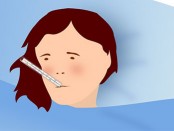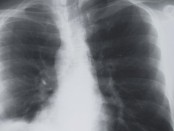Common cold ‘prefers cold noses’
The virus behind the common cold is much happier in a cold nose, US researchers suggest. Their study showed the human immune system was weaker in cooler temperatures, allowing the virus to thrive. The researchers suggested keeping your nose warm and avoiding cold air while infected. The findings were published in Proceedings of the National Academy of Sciences, Rhinoviruses are one of the main groups of virus that leaves our noses streaming and us sneezing. The team at Yale University tested rhinoviruses at a nose temperature of 33C, and a normal body temperature of 37C. “We’ve known for 50 years that it replicated better in the nose, but the mechanism has never been clearly defined,” researcher Dr Akiko Iwasaki told the BBC. She said the [More…]





